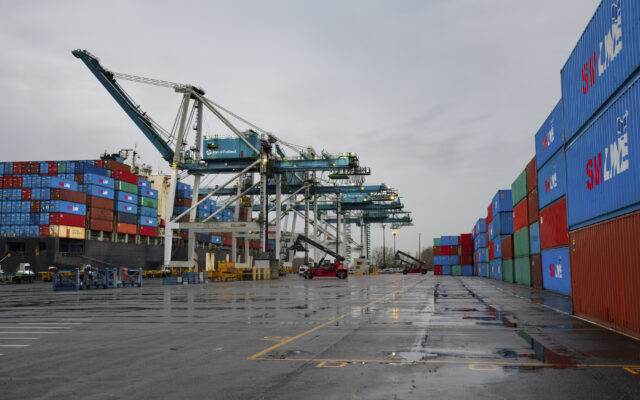U.K. Virus Variant Found In Clark County

VANCOUVER, Wa. – The virus variant first found in the U.K. has been detected in two samples in Clark County.
Public Health says one of the two cases had traveled out of the country before the positive test.
The two cases appear to be unrelated.
Here’s more from Clark County Public Health:
Vancouver, Wash. – The B.1.1.7 variant of COVID-19 has been detected in two Clark County cases.
The two Clark County residents recently tested for COVID-19 were found infected with the B.1.1.7 variant of SARS-CoV-2, the virus that causes COVID-19.
Specimens from the two cases were sent to Northwest Genomics Center, a lab at the University of Washington. The lab confirmed the variant by whole viral genome sequencing and notified Clark County Public Health of the results this week.
These are the first two cases of the B.1.1.7 variant identified in Clark County.
“This variant can spread more easily and quickly than others, but the measures we take to prevent the spread of COVID-19 are also effective in preventing the spread of the B.1.1.7 variant,” said Dr. Alan Melnick, Clark County health officer and Public Health director. “It’s essential that we continue to wear face coverings, practice physical distancing and avoid gatherings.”
One of the two cases had traveled out of the country prior to testing positive for COVID-19. However, the cases appear unrelated and the other case did not travel, suggesting the B.1.1.7 variant is circulating in Clark County. Public Health is not providing any additional information about the cases.
The B.1.1.7 variant was first detected in the United Kingdom last year and in Washington state in January. Data collected so far suggests a low prevalence of the B.1.1.7 variant in western Washington. However, the Centers for Disease Control and Prevention estimates the B.1.1.7 variant will become the dominant strain in the U.S. within a few months.
While the B.1.1.7 variant does spread more easily than other variants, evidence is lacking that it causes more severe illness or increased risk of death for those infected with it. The CDC continues to study the B.1.1.7 variant and other COVID-19 variants. So far, studies suggest the COVID-19 vaccines currently authorized for use are effective against the B.1.1.7 variant.
It will take months before everyone who wants a vaccine will be able to get it. In the meantime, everyone should continue to take steps to keep themselves, their loved ones and the community healthy.
- Wear a face covering anytime you’re around people you do not live with, including people you see regularly. Make sure face coverings fit well and have multiple layers.
- Stay at least 6 feet from people you do not live with.
- Avoid social gatherings. If you do gather with others, keep the gatherings outside whenever possible. If you participate in an indoor social gathering, keep the group size small, wear face coverings and open windows and doors to maximize ventilation.
- Wash hands often with soap and water. Use an alcohol-based hand sanitizer when soap and water aren’t available.
- Stay home if you are sick or if you have been in close contact with someone who tested positive for COVID-19.
- Seek testing for COVID-19 if you have symptoms or were in close contact with someone who tested positive.
Learn more about COVID-19 variants on the Washington State Department of Health and Centers for Disease Control and Prevention websites.



